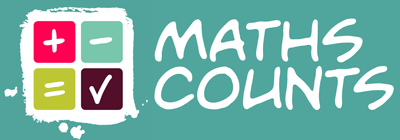Overview
Evidence strongly supports the claim that one-to-one and small group support are highly effective, particularly for primary school pupils in maths. It also suggests that learning approaches that encourage meta-cognition, or ‘learning to learn’ behaviours are highly effective, not only in improving confidence and ability in maths, but also in improving long term outcomes across a range of subjects. As a result, building self-esteem, resilience and personal aspiration are central to this programme and it has been specifically designed to capture and celebrate these often overlooked attributes. Maths Counts draws on the most recent evidence about supporting pupils with particular learning needs, including the principles of the highly regarded Every Child Counts ‘Numbers Count’ programme. This has been adapted based on good practice at The Mead Community Primary School, Trowbridge. Maths Counts has a strong commitment to closing the attainment gap and this is a fundamental principle of its design and implementation. The Maths Counts programme of study will be delivered by trained Learning Partners, in three 30 minute sessions per week for 10 weeks.
Selection and assessment
Children will be selected to take part in the ‘Maths Counts’ programme based on their need for support. A maths Lead Teacher will work with individual children for a series of diagnostic lessons, where both the learners’ strengths and learning needs are identified. These ‘diagnostic lessons’ are designed to be a rewarding experience for the children, where they will be given opportunities to identify their personal strengths.
An assessment will take place to pinpoint the current position of the child’s understanding/ability.
Learning Partners will be identified. These will often be teaching assistants, but may also be trainee teachers or other experienced school staff.
The Learning Partners will be trained in how to use the digital tool and its resources before starting the Maths Counts programme. Read more about the role of the Learning Partner.
Evaluation of the trial
A team from The University of Durham will evaluate this intervention. The project will involve a period of development and piloting in several schools. The aim of this phase is to finalise the content and develop the training programme.
From January 2016, The Mead Community Primary School will recruit 30 further schools for an efficacy trial starting in September 2016. For the trial, pupils in Years 3–6 will be identified as eligible for support if they are not meeting the Year 2 programme of study.
All those identified will be ‘randomised’ to receive Maths Counts from a trained Learning Partner, or to a control group that receives ‘business as usual’ support.
As the trial progresses, data from the intial diagnostic lessons and final assessments will be shared with The University of Durham, along with data from the control groups not involved in Maths Counts.
The role of the digital tool in Maths Counts
The digital tool is as a ‘one-stop-shop’ to lead the Learning Partner and child through a learning ‘journey’ via a series of learning steps. Each step will be represented as a visible clickable area on the tool. Examples of learning steps are: counting forward in 10s from a given number, working with number lines, understanding particular number facts etc. With each click the Learning Partner will have immediate access to a number of downloadable resources to support the child’s understanding of that particular learning step. These resources may be in the form of lesson ideas, games and activities, videos and more. This will be in the form of documents, videos, images etc. and this will be stored securely for that particular child. As and when appropriate the learning partner will visually highlight on the main user interface that a particular learning objective (step) has been achieved, both as motivation for the child and a visual guide of understanding and to inform future progress through the tool.
The Maths Counts digital tool:
- is populated with new National Curriculum content.
- sets out a progression of knowledge, skills and understanding.
- supports ‘no-levels’ assessment guidance.
- is fully interactive.
- is personal and unique to each child to promote engagement.
- tracks growing competency and progress.
- places additional focus on emotional and thinking skills.
- identifies next steps.
- consolidates learning.
- celebrates successes.
- sets targets when appropriate.
- generates a pupil report capturing progress and next steps.

“I really enjoy doing Maths Counts because I can concentrate and it doesn’t give me a really big headache anymore.” Year 4 learner
